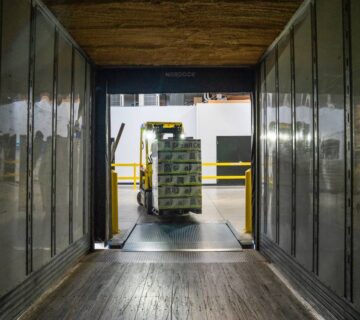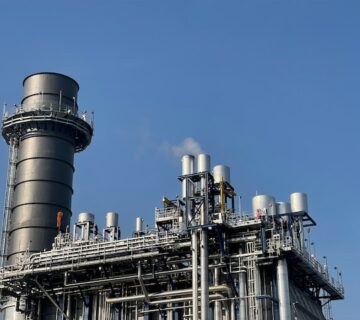Alco Bio Fuel Gent continuously invests to improve its energy efficiency. Our goal is to produce as much product as possible with as little energy as possible.
The most important raw material we use, corn, is optimally processed.
Anyone who believes that an ethanol plant only produces ethanol is mistaken.
To make ethanol we only use the sugar (starch) part of the corn. Valuable elements such as proteins and oil still remain.
The ethanol production process results in a concentrated protein slurry that is ideal for adding to existing animal feed. In Europe it is impossible to grow protein-rich crops that can compete with cheap genetically modified soy meal from (South) America. Our protein feed – not genetically modified – is one of the few ways to help the EU reduce its enormous dependence on feed proteins from other parts of the world. Replacing genetically modified soy meal with home-grown product also means less deforestation in South America.
In addition to our highly energy-efficient production process, our alcohol has much lower greenhouse gas emissions thanks to the capture of CO 2 and its reuse to replace fossil CO 2 . Thanks to its efficiency and innovation, Alco Bio Fuel Gent is in the European top league of greenhouse gas emission-reducing bio-ethanol plants. While the average CO 2 saving by bio-ethanol producing units in the EU is 73% compared to petrol emissions, Alco Energy Gent’s CO 2 saving is more than 90%. Alco Bio Fuel Ghent was the first bio-ethanol installation in Europe to receive an ISCC certificate.
Cogeneration
Thanks to our cogeneration unit, we produce electricity and steam with high energy efficiency; 35% better than the production of electricity and steam separately. The amount of steam exactly corresponds to the needs of our power plant, while 50% of the excess electricity production is supplied to the grid, which corresponds to the consumption of 10,000 households.
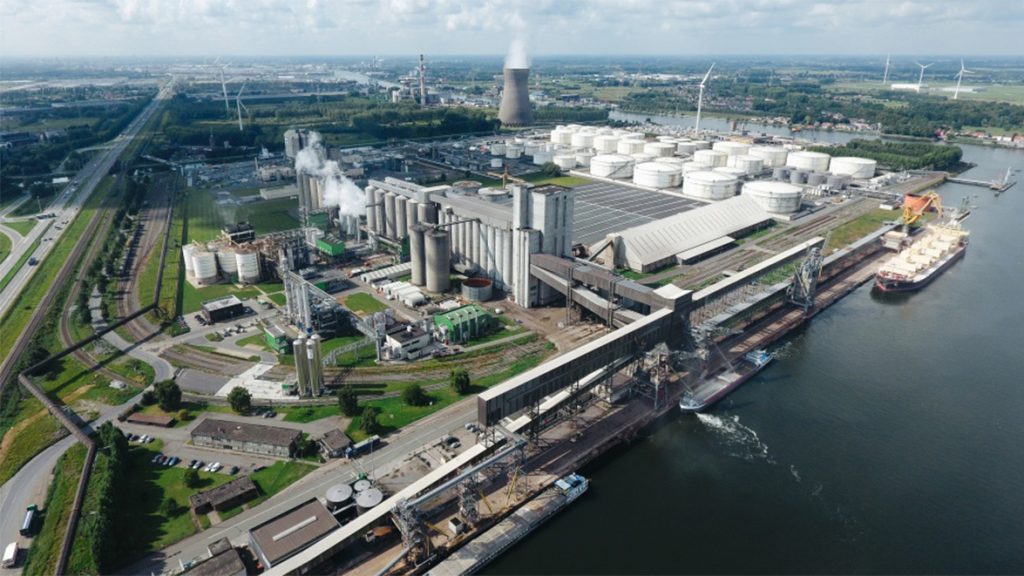
CO₂ capture
Alco Bio Fuel Gent and the industrial gas suppliers Messer Benelux and IJsfabriek Strombeek have invested in a CO 2 recovery unit, called GreenCO 2 , to reduce CO 2 emissions in Belgium.
Alco Bio Fuel Gent is one of the few EU ethanol installations that apply this Capturing Carbon and Utilizing technique, also known as CCU. The green CO 2 replaces the use of fossil CO 2 .
This installation has been operational since the summer of 2016 and annually captures and processes no less than 100,000 tons of green CO 2 . A second installation with the same capacity was started up in early 2022.
This installation captures and purifies the green CO 2 gas released during the ethanol fermentation process and converts it into a liquid that can be used in the food and beverage industry, in water purification, for refrigerated transport or as a chemical source.
In addition to using this CO 2 in an environmentally friendly manner, this also results in a reduced CO 2 footprint of the bio-ethanol we produce. Thanks to this capture and reuse of CO 2 , Alco Bio Fuel Gent is one of the few bioethanol producers in the EU with a greenhouse gas emission reduction that is far above the EU average.
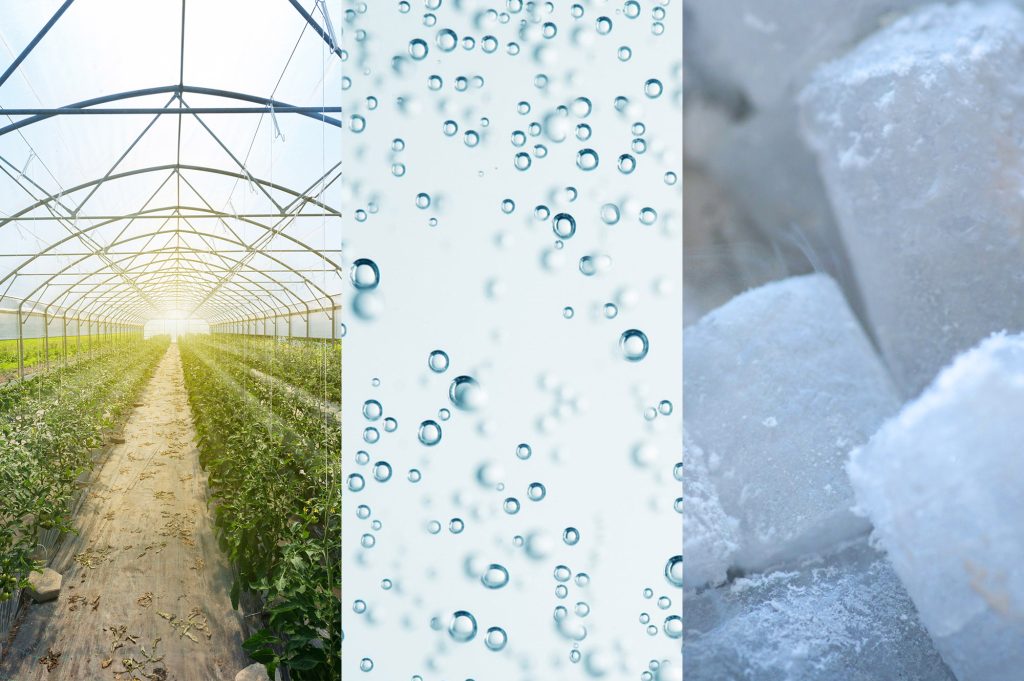
Logistics via waterway
Thanks to our perfect location within the port of Ghent, we can carry out the logistics of our raw materials (mainly corn) and our end product ethanol over water, which is the most sustainable way of transport.
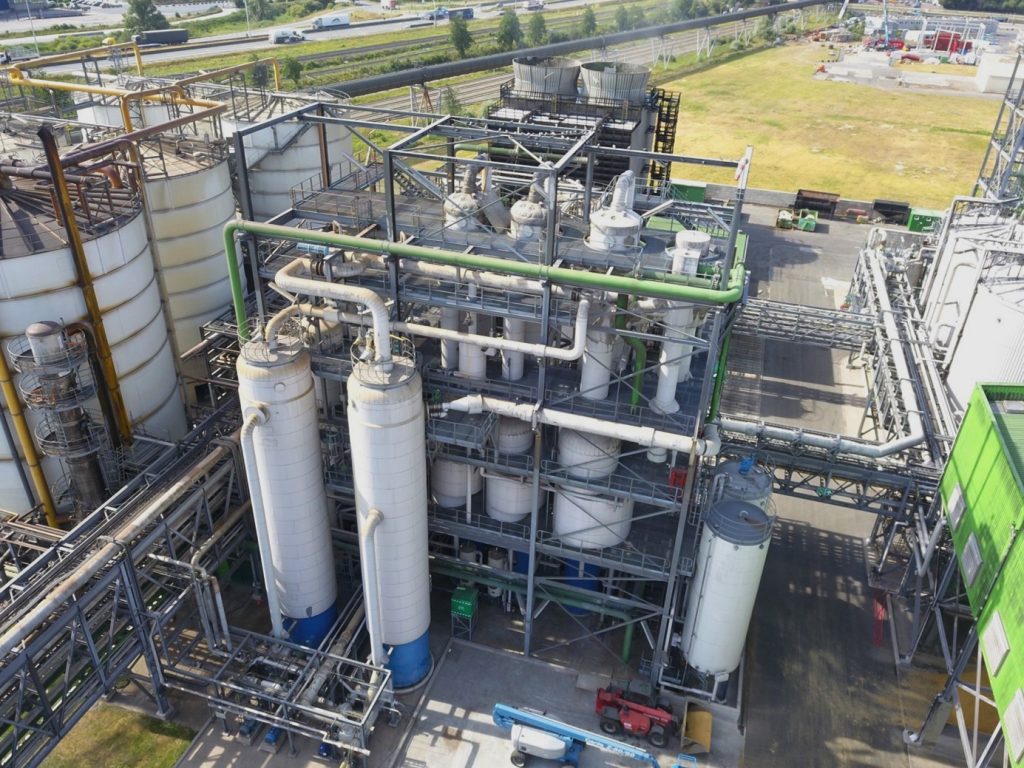
GreenTeam
Monitoring sustainability principles and working towards the lowest possible CO 2 footprint are central to Alco’s medium- and long-term vision. To coordinate all efforts around Alco’s core value of increasing sustainability and to do this beyond the boundaries of the individual companies in the group, a multidisciplinary sustainability task force was established: The Green Team.
The team has a number of well-defined tasks. Such as designing uniform sustainability procedures for the entire Group, monitoring internal compliance with these procedures, communicating and training on sustainability themes and related matters, and supporting the various technical teams within the Group in the field of greenhouse gas calculations in response to changes in the production process. The calculations strictly follow the EU procedures defined in the Renewable Energy Directive.
The Green Team’s work also includes external related tasks such as conducting the annual ISCC audits and keeping abreast of regulatory developments at EU and national level.
Finally, the team is tasked with looking to the future and searching for alternatives that can achieve Alco’s goal of being carbon neutral by 2030.
Connect with us
We are here to start your new project
